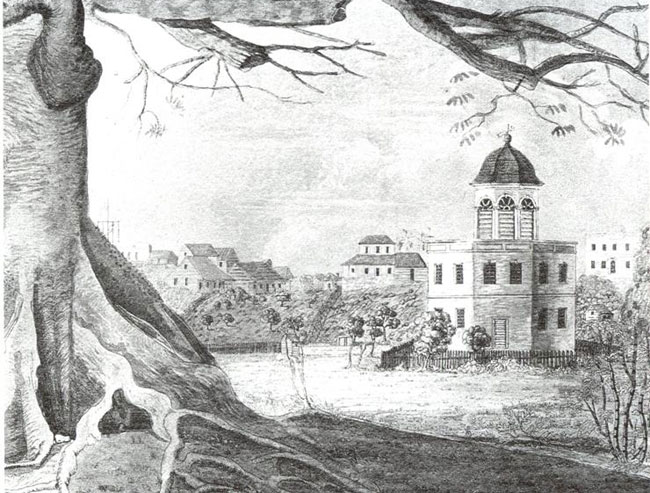
Image from p22 of Reminiscing II by Ronald G Lightbourn
|
Nassau, Bahamas -
The following was written by
by Paul Boultbee:
Libraries in some form or another have existed
since man first learned to read and write; to record his triumphs and defeats,
his commerce, laws and literature. Records of civilization have been kept for
nearly 3000 years and have nearly always found their way into some kind of
library, archive or repository of knowledge.
Originally these collections were
either royal or government libraries and remained as such, for the most part,
until the 18th century.1 It was not until this time that the
predecessors of the public library, as we know it today, came into existence.
These early movements, culminating in public library systems, began in Britain
and have a direct bearing on the development of library service in the Bahamas.
In order to understand the influences of these
developments in general and on the establishment of the Nassau Public Library
in particular one must look at library developments in Britain during the 18th
and early 19th centuries.
The Industrial Revolution had a far-reaching
effect on all of English society and created a growing social consciousness
among the population. This concern resulted in the passing of the Factory Acts,
the Public Health Acts, etc. creating a whole new society. In order to cope
with this new society the people had to be informed, reformed and re-educated.
One solution was in the establishment of Mechanics' Institutes, "... a
brave attempt to break the wall of ignorance that hemmed in the working classes."2 These institutes were for the working men, the
mechanics and artisans, who wished to enjoy the benefits of education
particularly in relation to their trades and occupations. The movement began in
Glasgow in 1800 when Professor George Birbeck of the Andersonian Institution
began offering adult evening classes. A small library was established and in
1823 the students founded the Glasgow Mechanics' Institution. Within 25 years
there were 400 active institutions in the United Kingdom and by 1863 there were
over 700.3
Many years before the establishment of
Mechanics' Institutes there were, in Britain, subscription and circulating
libraries. The circulating libraries began in Scotland in 1725 when Allan
Ramsay, bookseller and poet, set up his shop in Edinburgh and charged a fee for
the borrowing of his books.4 By
1800 there were no fewer than 1,000 circulating libraries scattered throughout
the United Kingdom.5
During the first half of the 20th century, however, these commercial libraries
faced increasing difficulties: competition from public libraries, rising costs,
and the increasing popularity of paperbacks. Few, if any, circulating libraries
exist today.
A circulating library of this type, at one time,
existed in Nassau. A newspaper advertisement offers evidence of this. In the Royal
Gazette of July 24, 1804 Thomas Williamson announced that he had 500
novels and plays in his circulating library. Members who paid six and a half
dollars for a period of three months would be able to borrow books from this
collection. Thelma Peters mentions this library and refers to it as one of the
legacies of the Loyalist period.6
If you are interested in the full text
of the article, you may order this issue of our Journal for B $5.00 plus
shipping & handling by contacting the Society.
All past Journals sell at $5 ($3 for students)
The 2009 Jubilee sells at $10 ($7 for students)
Full set of 31 Journals: $110
For more information on contents and purchasing past
Journals check our website.
Our next talks are:
Thursday
28th
January 2010 at 6pm Talk
Sir Randol Fawkes by Rosalie Fawkes
Thursday
25th
February 2010 at 6pm Talk
‘Over-the-Hill’ Grants Town by Sir
Orville Turnquest.
The Bahamas Historical Society (BHS)
is a non-profit organization dedicated to stimulating interest in
Bahamian History and to the collection and preservation of material
relating thereto. Its Headquarters, the former IODE Hall, was a gift
from the Imperial Order of the Daughters of the Empire (IODE). BHS is
on Shirley Street and Elizabeth Avenue in Nassau.
www.bahamashistoricalsociety.
com
